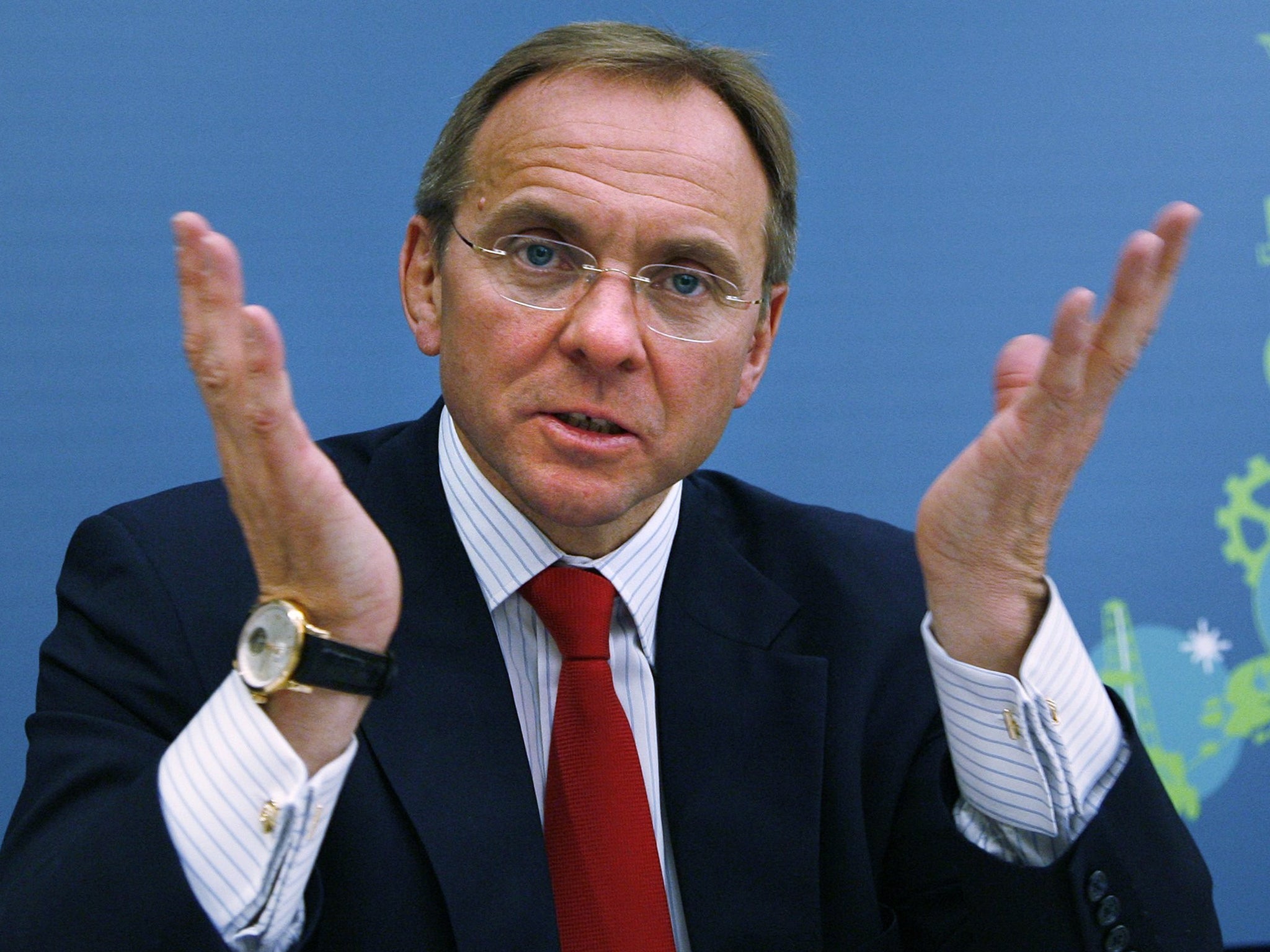Controversial former BP executive rises to the top of the Civil Service
Mr Manzoni ran around half of BP’s global operations before moving on to Talisman Energy, a company heavily involved in fracking in the US

Your support helps us to tell the story
From reproductive rights to climate change to Big Tech, The Independent is on the ground when the story is developing. Whether it's investigating the financials of Elon Musk's pro-Trump PAC or producing our latest documentary, 'The A Word', which shines a light on the American women fighting for reproductive rights, we know how important it is to parse out the facts from the messaging.
At such a critical moment in US history, we need reporters on the ground. Your donation allows us to keep sending journalists to speak to both sides of the story.
The Independent is trusted by Americans across the entire political spectrum. And unlike many other quality news outlets, we choose not to lock Americans out of our reporting and analysis with paywalls. We believe quality journalism should be available to everyone, paid for by those who can afford it.
Your support makes all the difference.A former BP executive criticised for his role in the Texas oil refinery explosion which killed 15 people in 2005 is to become the first chief executive of the Civil Service.
John Manzoni will be responsible for making savings across Whitehall in areas such as IT, procurement and contracts. For the past six months, he has been overseeing the Government’s watchdog scrutinising major projects such as HS2 and the nuclear programme.
The controversy at BP arose when Mr Manzoni was blamed by an internal report for failing to heed “serious warning signals” prior to the Texas explosion.
Mr Manzoni ran about half of BP’s global operations before moving on to Talisman Energy, a company heavily involved in fracking in the US, which was fined over dozens of health and safety violations.
He is due to start his new role as civil service chief on 13 October, with a salary of £190,000 a year. He will report not only to the Cabinet Secretary, Sir Jeremy Heywood, but also to the Chief Secretary to the Treasury, Danny Alexander, and the Cabinet Office minister, Francis Maude.
Sir Jeremy admitted that the Civil Service still needed to be “much better at doing commercial stuff”, such as contract management, which will be an early priority for the new chief executive.
Mr Manzoni’s role will be vital as the Civil Service attempts to find about £13 billion of extra cuts in the spending round after the general election. Mr Maude said he expected efficiency would have a “very big role” whoever was elected, and Mr Manzoni would be closely involved in delivering that.
One of Mr Manzoni’s priorities will be to drive the expansion of the Government Digital Service that aims to transform the way in which people interact with government online.However, this has not been entirely smooth so far, with a website designed to allow people to renew their tax disk online crashing on its first day.
Yesterday’s announcement comes alongside a new progress report on Civil Service Reform. The report says that more people from outside the Civil Service will be brought in to fill skills gaps, with more training and support for existing civil servants.
By April 2015, there will be a presumption that senior civil service appointments below permanent secretary level should be open to external candidates. Applicants for permanent secretary posts will be expected – and, after summer 2016, required – to have completed an appropriate business school leadership course, ensuring that leadership skills are prioritised.
Announcing the chief executive appointment, David Cameron said that Mr Manzoni’s private sector experience put him in the “perfect position to accelerate the pace” of civil service reform.
Sir Jeremy added: “We have all been impressed by John’s leadership of the Major Projects Authority.”
Mr Manzoni was chosen after an external competition which some believed would result in a high-profile outsider being brought in to run the Civil Service.
However, there was thought to be little interest in so called heavyweight business figures, and ministers decided to stick with someone who was a known quantity.
Join our commenting forum
Join thought-provoking conversations, follow other Independent readers and see their replies
Comments